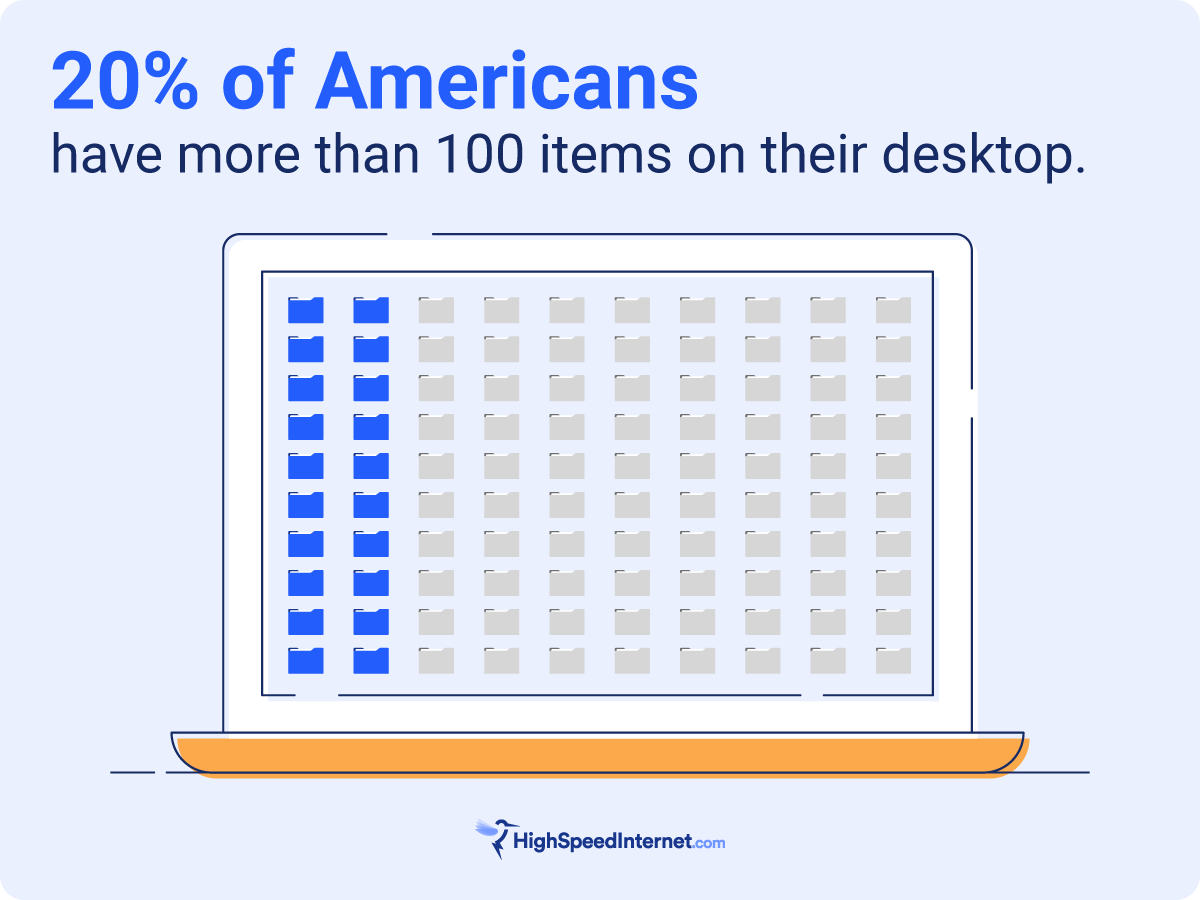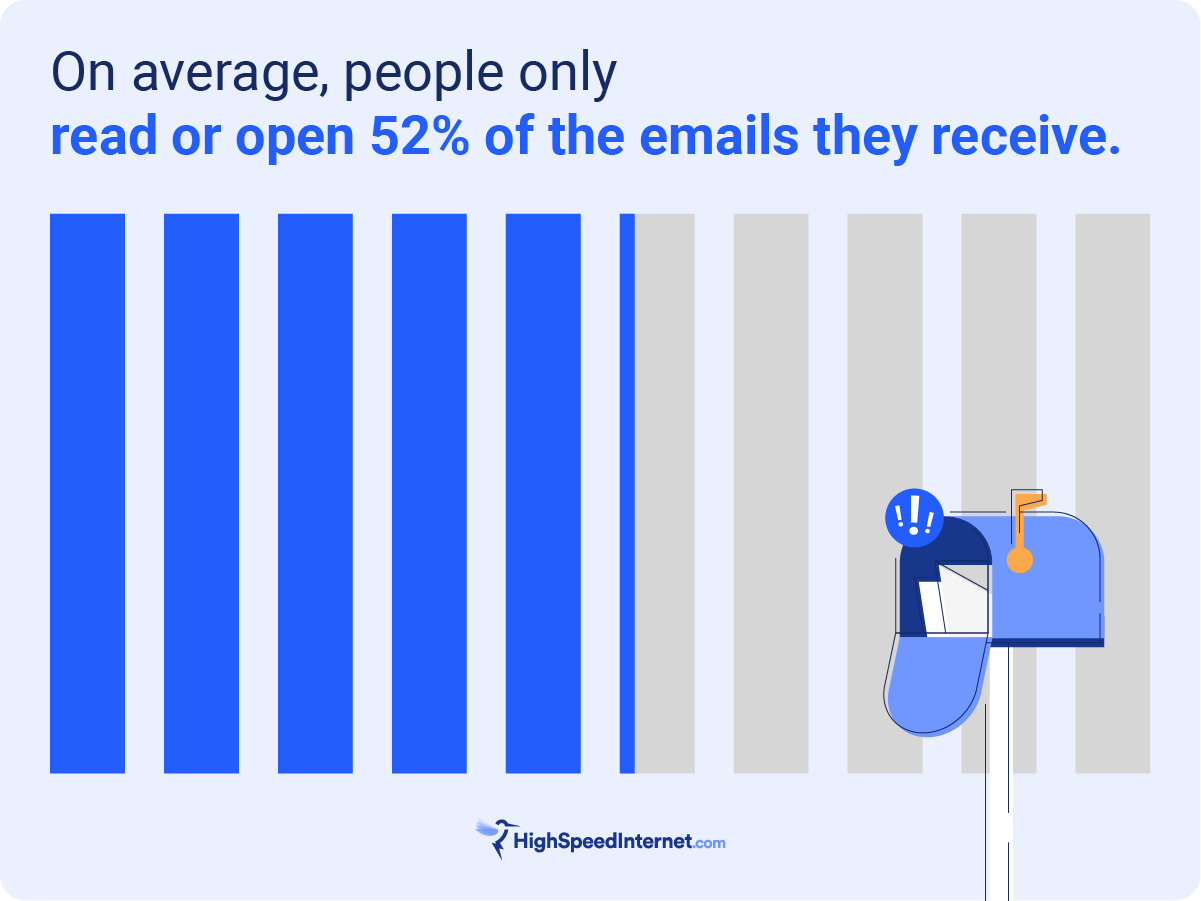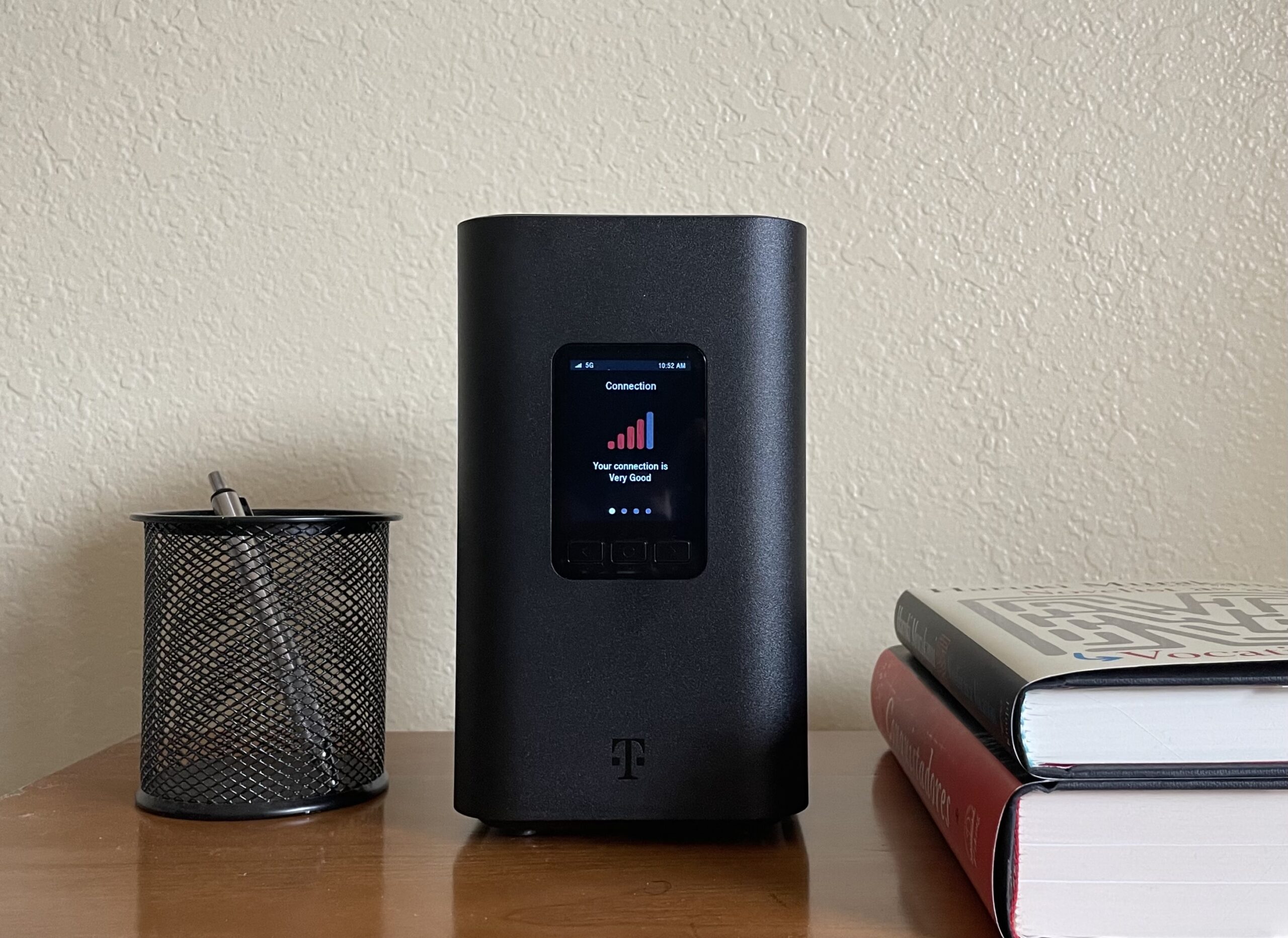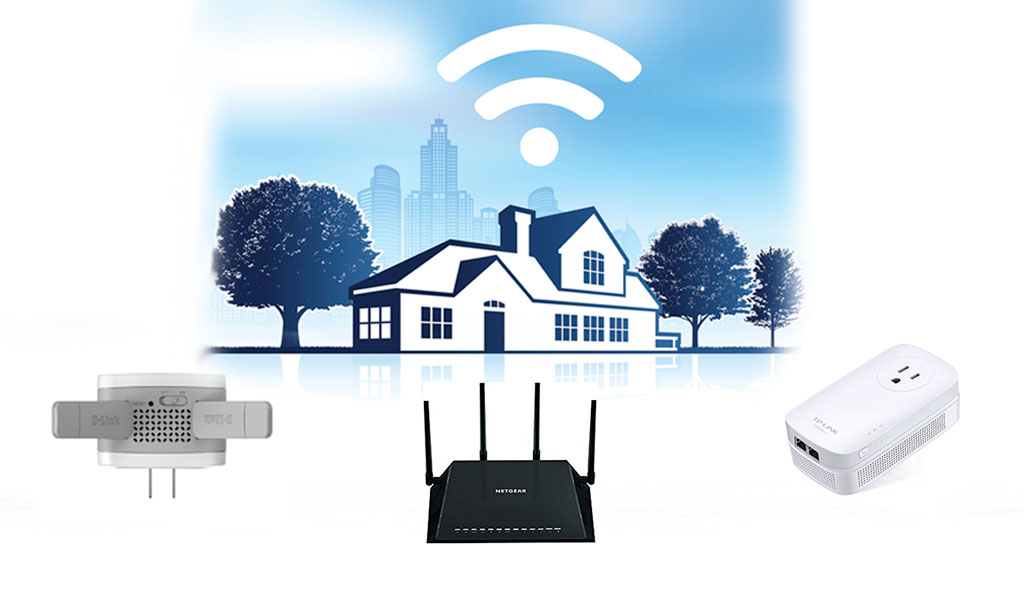2 in 3 Americans Say Digital Files Lead To Stress or Anxiety
Americans' cyber hoarding habits in 2022
Nov 16, 2022 | Share
Industry Exclusive/Entertainment, Technology
Americans are spending an average of eight hours online each day in 2022—and their internet usage is increasing. But with each website that remains in an open tab or email that remains unread, could Americans’ digital files be contributing to unnecessary stress and anxiety?
We asked 1,000 Americans about their digital habits and how they manage digital clutter and found that a majority of respondents (62%) feel stress or anxiety due to the sheer number of digital files they have. They may not think it’s an issue—and over half don’t believe they have a digital hoarding problem—but digital hoarding can also manifest in slower internet speeds and increased cybersecurity risks.
So do you think you’re a digital hoarder? In our 2022 cyber hoarding report, we’ll cover the telltale signs of digital hoarding and how it might impact your online life.

High-speed facts
- The internet has almost 2 billion websites
- Americans don’t delete files, documents, or emails on a regular basis
- There are four dimensions of digital hoarding in the workplace
- Nearly 1 in 4 Americans don’t clear their internet browser cache or cookies
- Over 60% of people say they experience internet speed issues sometimes or frequently
Roughly half of Americans hoard their digital files
Digital hoarding isn’t an uncommon phenomenon. We’ve all received an email from our friends with the article we just have to read or the Slack message from our boss with a Google Docs presentation we have to watch. And we’ll open the tab or save the email—and promise ourselves we’ll come back to it later.

But it turns out that a lot of us hoard the data and keep it beyond its use.
- With so much information available online, it’s no surprise that over two-fifths of our respondents (42%) reported keeping documents they may no longer need.
- E-hoarding extends beyond digital documents: only 52% of respondents delete emails on a regular basis.
- Over 1 in 6 Americans have more than 100 items on their desktop.
“Everyone hoards digitally to some degree, and this is normal,” Nick Neave, a professor of psychology at Northumbria University who studies hoarding behavior, told HighSpeedInternet.com.
The four dimensions of digital hoarding
Nearly 12% of our respondents said the most common reason they would avoid deleting something is because they need it for work. Neave noted that as “working practices have become increasingly digital and online as opposed to offline and paper, [digital hoarding] seems a natural progression of working practices.”
In a 2020 peer-reviewed paper, now cited in numerous articles as landmark research for digital hoarding, Neave and his coauthors used their Digital Hoarding Questionnaire to identify four “dimensions” of cyber hoarding in the workplace.4
- Anxiety driven digital hoarding describes people who are “nervous about deleting any digital data and believed that they might need their files again in the future.”4
- Compliance driven digital hoarding is because of company policies and employees keeping their files well organized with knowledge of what’s on hand.
- Disengagement driven digital hoarding focuses on disorganized data where people feel like they lack control over their accumulated files.
- Collection driven digital hoarding is purposeful, organized, and used to help people with tasks—for example, keeping emails as reminders.
When asked whether these workplace dimensions could carry over into personal digital hoarding, Neave responded that they are gathering data and “we expect to see some similarities but some differences also.”
Our survey found that over 50% of Americans avoid deleting digital files because they worry they might need it in the future, meaning “anxious” data hoarders are probably the norm here. (I know I’m in that category.)
The harm of being a cyber hoarder
The more digital content you have stored on your device, the more you run the risk of running into problems. Neave told HighSpeedInternet.com that cyber hoarding can lead to inefficiency, environmental problems (due to servers storing unnecessary data), and the danger of a hack or cyberattack.
Cyber hoarding and cyberattacks may not seem related, but data breaches happen, and uncleared caches or keeping the same password make it easier for hackers to access your trove of hoarded data.
- Less than 24% of Americans change their passwords on a regular basis.
- Over a third of Americans rarely or never review active accounts or subscriptions. This can lead to hacks and data breaches that users never know about.
- 45% do not regularly update apps installed on their phone or computer. App updates often include cybersecurity improvements.
- Not clearing your cache keeps a lot of sensitive data stored on your computer, and makes it easy for hackers to exploit. We found that over 1 in 4 Americans rarely or never clear the cache or cookies from their browser.
Luckily, there are easy ways to clear your cache and change your password every few months. It’s a good habit to be in, and it might even help your internet speed!
Is your digital clutter posing risks to your internet speed?
I know I’m guilty of having too many windows open and not deleting emails after I read them. But does digital clutter affect our internet speed?
- When using the internet on the computer or their phone, respondents had an average of seven tabs open at once.
- Only 25% of Americans declutter their devices on a regular basis.
- Over 60% of respondents experience issues with internet speed. These issues include websites taking too long to load, lags in streaming, and slow computer/internet activity.
Everyone’s internet is different, though. And we found that 54% of Americans don’t even know what internet speed they’re paying for at home. So that begs the question: What internet speed do you need?
Sure, yours may thrive right now on the challenge of thirty open tabs playing Netflix while someone else’s internet may struggle with a Google search on tab number sevenn. It all comes down to internet speed. Who knows, maybe your speed is the issue and not digital clutter. To see if your cyber hoarding habits are affecting your internet speed, run a speed test.

Tips and tools for digital decluttering
So how can you combat slow internet speeds and digital clutter? Well, it starts by recognizing why you’re hoarding. If there’s a legitimate reason—like backing up company files—then by all means carry on. But if it’s harming your work flow and slowing your internet, then we have some ideas that could help:
- Create folders on your desktop and email for organization.
- Set a limit on bookmarks and saved files.
- Delete old emails and unnecessary saved files.
- Read and delete (or organize) files and emails when you receive them.
Sure, the system may not be perfect and there will always be files that fall through the cracks, but these digital organization tips can help you declutter your devices.
At the end of the day, there’s so much else going on that you shouldn’t feel stress about digital files. And if you are stressed about them, we get it. We’re digital hoarders too.
Welcome to the club. We’re here to help.
Methodology
HighSpeedInternet.com ran a survey of 1,000 Americans age 18+ in October 2022, using the online survey platform PollFish. The results shown above are post-stratified. Post-stratification weighting method is a way to achieve a distribution equal with that of such known characteristics of the population. In this case, it was applied to age and gender.
If you have questions about the survey, methodology or data in this report, you can email them to press@highspeedinternet.com.
Sources
Are you a journalist or researcher writing about this topic?
Our team can answer your questions with industry insights and proprietary data.
* Required
Thank you for your question
We'll be in touch soon.
- CERN, “Software release of WWW into public domain,” April 30, 1993. Accessed October 13, 2022.
- InternetLiveStats.com, “Internet Live Stats,” October 26, 2022. Accessed October 26, 2022.
- Statista, “Number of sent and received e-mails per day worldwide from 2017 to 2025,” September 12, 2022. Accessed October 13, 2022.
- Kerry McKellar, Elizabeth Sillence, Nick Neave, Pam Briggs, “There Is More Than One Type of Hoarder: Collecting, Managing and Hoarding Digital Data in the Workplace,” Interacting with Computers, Volume 32, Issue 3, May 2020, Pages 209–220.
Author - Alex Kerai
Alex began writing for student newspapers and has managed to turn that into a career. During the COVID-19 pandemic, he wrote about small businesses for Biz2Credit and Business.org. Before that, he spent time in communications for higher education institutions, created marketing materials for nonprofits, and worked for entertainment companies in Los Angeles. Today, he reports on emerging consumer trends and his work can be seen on Business.org, Reviews.org, WhistleOut.com, SatelliteInternet.com, and CableTV.com. When he's not writing, Alex watches too much TV, plays guitar, reads and writes fiction, and goes on nature walks.





